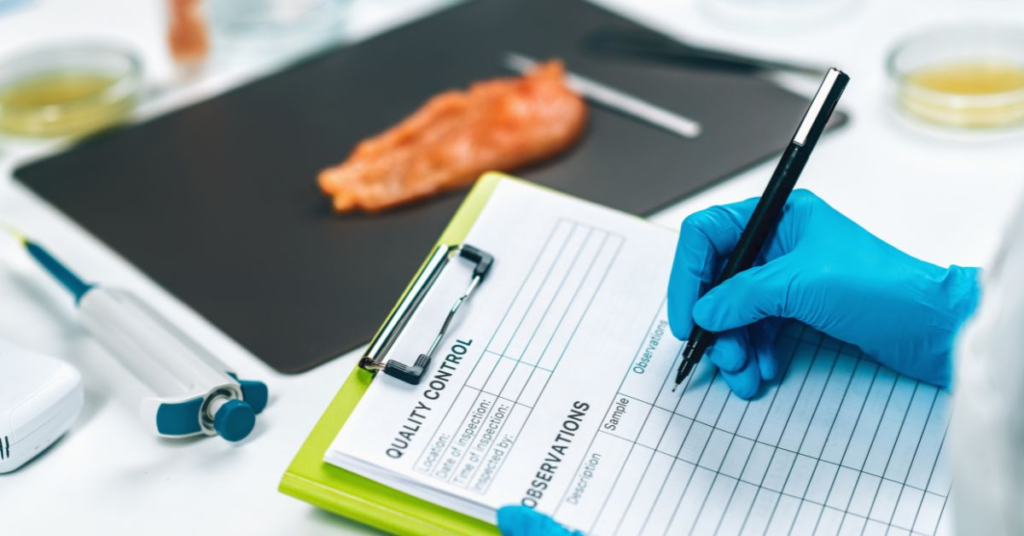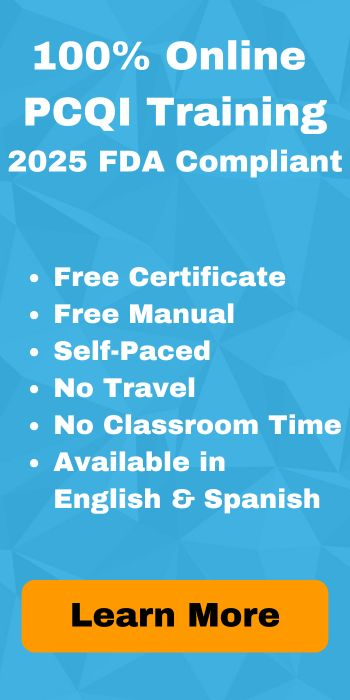
Food safety isn’t a one-and-done process. It requires constant vigilance, adaptation, and improvement to maintain the highest standards. Continuous improvement is at the heart of successful food safety programs, helping businesses stay compliant, reduce risks, and uphold consumer trust.
It is often integrated into food safety systems like HACCP (Hazard Analysis and Critical Control Points) and FSMA (Food Safety Modernization Act). It is more than a regulatory requirement—it’s a proactive approach that ensures food safety measures remain effective over time. But why exactly is it so critical?
Adapting to Changing Regulations
Food safety regulations are updated to address emerging risks, new research, and technological advances. For example, the FDA publishes guidance documents and hazard analysis updates. Without a continuous improvement mindset, food companies can easily fall behind and face non-compliance issues, which can lead to costly recalls, penalties, or, worse, consumer harm.
Another consideration is how allergen management has evolved. The rise in awareness about food allergens has prompted updates to labeling laws and cross-contamination protocols.
Regularly reviewing and updating your food safety practices ensures that your business is always aligned with the latest legal standards. A well-implemented Food Safety Management System (FSMS) must incorporate these changes seamlessly, which is why continuous improvement is essential.
Mitigating Risks Through Proactive Adjustments
Food safety risks are dynamic. An undocumented hazard in ingredients in your supply chain may emerge due to a new supplier, changes in processing methods, poor adherence to an SOP or even seasonal ingredient variability. Waiting for an incident to happen before reacting is not an option in food safety.
By regularly evaluating your processes and systems, you can identify potential hazards before they become full-blown issues. This concept aligns with Corrective and Preventive Actions (CAPA), a crucial aspect of food safety programs where mistakes are corrected and processes are improved to prevent recurrence.
Strengthening Employee Competence and Accountability
A significant part of any food safety program is ensuring employees are well-trained and capable of following SOPs while documenting corrective actions. However, more than simply training employees once is required. Continuous education and reinforcement of food safety practices are crucial to maintaining compliance and mitigating human error.
Food safety is only as strong as the people who implement it. Periodic refresher courses, role-specific training, and real-time performance reviews should be integral to your continuous improvement plan. Training platforms like ImEPIK® provide ongoing educational resources that empower your staff to stay up-to-date with the latest food safety regulations and best practices. Online training that provides for remediation and assessment makes a big difference in changing performance and retention of material.
Improving Supplier Management and Traceability
Supply chains in the food industry are complex, with multiple points where contamination can occur. Without ongoing evaluation, even a small oversight in supplier quality management can lead to foodborne illness outbreaks or recalls.
Your supplier verification program ensures that all suppliers comply with the highest standards and that your traceability systems can identify issues quickly, which is particularly important for businesses focusing on traceability. A robust system to track and recall products is vital to limiting the scope of an incident.
Staying Competitive in the Marketplace
In addition to the regulatory and safety benefits, continuous improvement in food safety programs offers a competitive edge. Consumers are more informed than ever about food safety and prefer companies that prioritize transparency and safety. Maintaining and constantly improving your safety standards can bolster your brand reputation and customer loyalty.
A successful example of this can be seen in businesses that adhere to globally recognized safety standards like SQF (Safe Quality Food) or BRCGS (Brand Reputation Compliance Global Standards, previously British Retail Consortium), where continuous improvement is a core principle. When consumers know your company is committed to maintaining the highest safety standards, they are more likely to trust your products.
ImEPIK® offers a comprehensive FDA and SFCR-approved PCQI training curriculum. Our PCQI course covers barriers to food safety behaviors and how to overcome them. We provide individual packages and team packages.
Our PCQI training is 100% online and includes your certificate of completion. You can take our course at your own pace and access your PCQI course anytime and anywhere. Contact us today to learn more about our training programs and how we can help you build a robust food safety culture.

